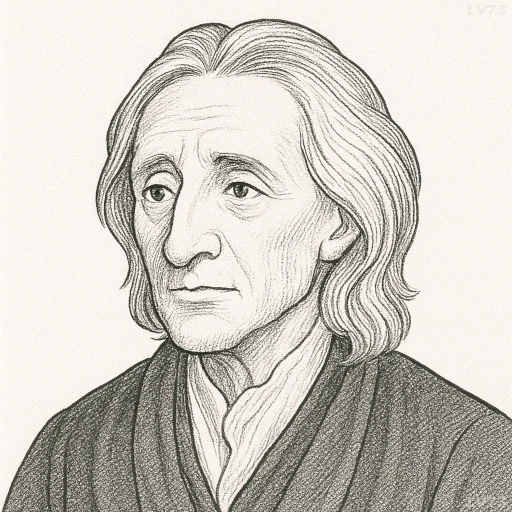“What worries you, masters you.”

- August 29, 1632 – October 28, 1704
- Born in England (UK)
- Philosopher and political thinker
table of contents
Quote
“What worries you, masters you.”
Explanation
In this quote, John Locke emphasizes the power that worry or anxiety can have over an individual. He suggests that when a person is consumed by worry, it can take control of their thoughts and actions, effectively mastering them. Worry has the potential to dominate a person’s mind, cloud their judgment, and influence their behavior in negative ways. Locke implies that the more we allow ourselves to be preoccupied by concerns, the more we give them power over us, allowing them to shape our lives and decisions. This reflects the idea that mental states, such as worry, can have a strong hold on a person, often directing their energy away from rational thought and positive action.
Locke’s view on worry fits within his broader philosophy of reasoning and self-control. In the 17th century, philosophers were beginning to explore the psychological dimensions of human behavior, and Locke himself was interested in how the mind interacts with emotions and reason. In this quote, Locke suggests that rationality and self-awareness can help free individuals from the paralyzing grip of worry. The idea that control over one’s thoughts is key to freedom and happiness is consistent with Locke’s broader advocacy for mental discipline and empirical learning, where individuals must actively engage with their emotions rather than be led by them.
In modern times, Locke’s observation is relevant in the context of mental health and emotional well-being. Today, anxiety and worry are recognized as significant factors in stress and various mental health conditions, such as depression and generalized anxiety disorder. Locke’s insight speaks to the importance of self-awareness and mental resilience in overcoming the negative effects of worry. Whether through mindfulness, cognitive-behavioral therapy, or personal reflection, the idea that worry can dominate one’s life is still relevant. Locke’s quote serves as a reminder to recognize when worry is taking control and to actively work to manage it, rather than letting it guide our decisions and actions.
Would you like to share your impressions or related stories about this quote in the comments section?
